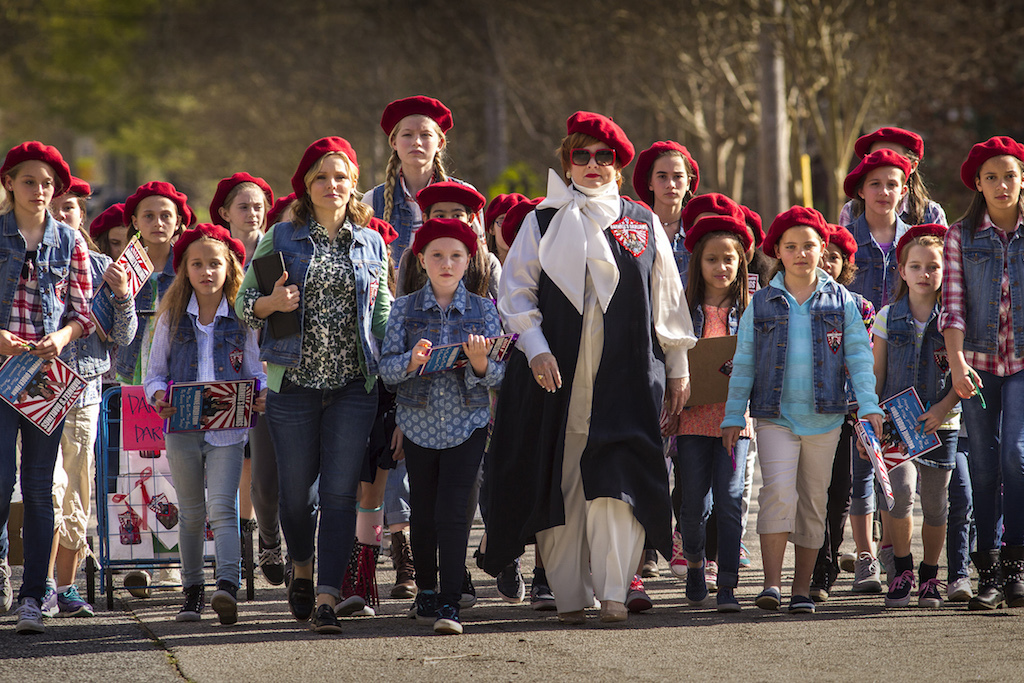
The Boss starts out promisingly enough. Melissa McCarthy plays a successful business mogul and motivational speaker named Michelle Darnell who emphasizes self-reliance, what she calls the Power of One. At her public events, she struts on stage—red helmet hair intact—and proceeds to deliver something that is part light show, part hip-hop concert, and 100-percent cult of personality. Back in her office, she has an opportunistic “yes” man (Cedric Yarbrough) and a put-upon personal assistant named Claire (Kristen Bell). It’s amusing to see McCarthy play this over-the-top, Suze Orman-like creation and I wanted more of it. Instead, almost immediately, Darnell is indicted for insider trading and sent to prison, at which point I realized, with some dismay, that this was going to be a story of redemption. (Darnell was orphaned as a child—and rejected by several potential adoptive families—so this cocky persona she’s built is secretly a cry for help. Boo.)
This is McCarthy’s second collaboration with her husband, the actor/director Ben Falcone—the first was the awful Tammy—and I don’t know how to put this any more plainly: They need to stop doing this. Tammy was a scattered mess, barely a movie at all, and The Boss isn’t much better. Some clarity came when I found out that Michelle Darnell was one of the characters McCarthy played back in her The Groundlings days. What works in a five-minute sketch rarely transfers into a feature film.
Once out of prison—the film is too lazy to even bother to show her time served—Darnell finds herself broke and is forced to move in with Claire and her precocious daughter Rachel (Ella Anderson) in their cramped apartment. Then she gets a bizarre idea to create some sort of for-profit girl troop, dressing her charges as mini Che Guevaras in maroon berets and jackets emblazoned with raised-fist patches, and getting them to sell Claire’s conveniently irresistible brownie recipe. (This tiny operation, run out of Claire’s kitchen, is apparently enough to begin to restore Darnell’s fortune.)
The film’s idea of humor mostly involves pratfalls—one down a flight of stairs, another when a couch bed springs up into the wall (a joke that was very funny—60 years ago, when Lucille Ball first did it). Also funny in this film’s world: Intimating that little girls are lesbians (really), mocking one girl for being very tall, and having women routinely call each other “c”-words and bitches. (There’s a sort of funny bit involving ill-fitting bras—but in context, it just feels like piling on). Peter Dinklage, on hand as an elaborately coiffed rival mogul who’s also secretly in love with Darnell, was funnier on last week’s episode of SNL. And it’s a minor point, but Darnell’s uniform of giants bows and turtlenecks that she wears pulled up to her chin—even when she sleeps (!)—are distractingly bizarre. Maybe they’re meant to suggest that her own clothing is armor against an unforgiving world? Anyone?
Look, I love Melissa McCarthy—she is a truly gifted comic actress—and I want to love her films. So she should stop making bad ones! It’s bumming me out! (P.S. Spy is still great. See it.)
